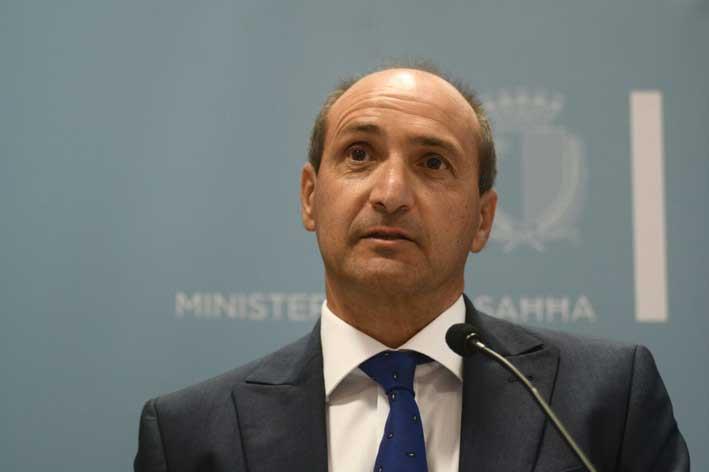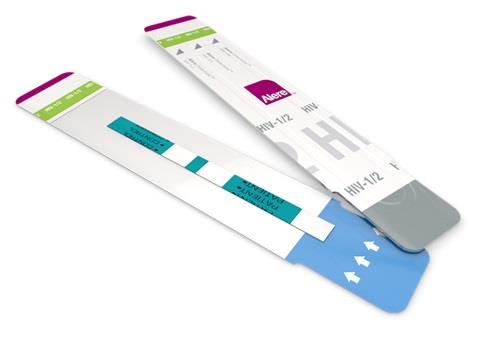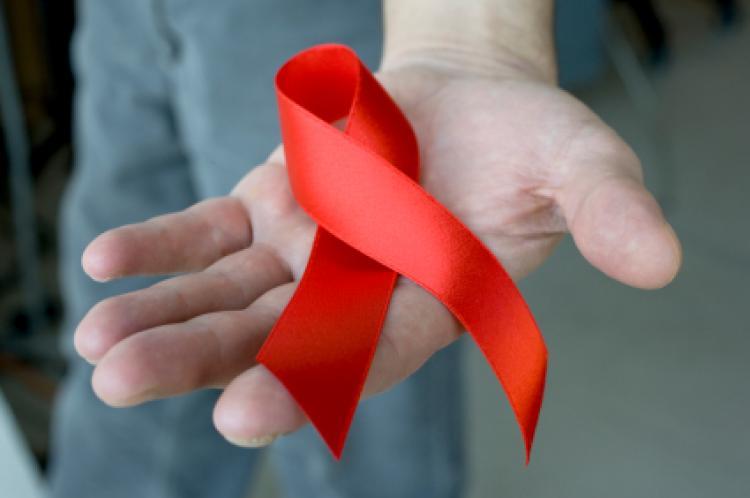Health Minister Chris Fearne has confirmed with The Malta Independent on Sunday that the government is currently in the process of purchasing HIV rapid testing kits that will be available free-of-charge from Mater Dei Hospital’s GU Clinic as of June.
In addition, the ministry has also confirmed that the HIV rapid tests will also be made available at pharmacies. Sources in the medical field have confirmed that such kits will be available for purchase over the counter for approximately €30. The thinking behind this is to provide an alternative means for those who may be uncomfortable being seen visiting the GU clinic. Such people will be free to instead buy the test at a pharmacy and carry out testing safely from the privacy of their homes.
Health Minister Chris Fearne (below) said that, “The introduction of Rapid HIV testing will help us achieve the target for the year 2020 of having 90 per cent of all people living with HIV being aware of the fact. This will help reduce the transmission of HIV infections, while of course offering effective treatment to those who test positive.”
It is understood that the tests work in a similar fashion to blood-sugar testing kits given to people with diabetes in which a small device is used to prick the finger and a small quantity of blood is smeared on a test strip, which is then inserted into the testing device.
Other home kits available on the market make use of saliva swabs, however researchers say that due to the lower levels of antibodies found in saliva, compared with those found in blood, blood testing kits are more accurate. The government will make both types of kits available for free at the GU clinic.

Scope behind the introduction of rapid testing
In the recently adopted 2030 Agenda for Sustainable Development, EU member states resolved to end the AIDS epidemic by 2030. To achieve this, the EU has established a set of goals to be met by 2020, as follows:
· 90% of all people living with HIV will know their HIV status.
· 90% of all people with diagnosed HIV infection will receive sustained antiretroviral therapy.
· 90% of all people receiving antiretroviral therapy will have viral suppression.
Dr Fearne explained that while Malta is excelling in the second and third categories, only 75% of those with HIV are aware of their status.
“While in Malta we are above and on track in terms of the second and third targets, we do fall behind in the first. In Malta only 75% of those that have HIV know their status, and of those who know their status 98.6% are on antiretroviral therapy, 86.5% of which are virally suppressed.
“This scaling of rapid testing is essential to reach our first target. Rapid testing is more accessible and it gives a faster result. In addition to free testing being available on a walk-in basis at the GU clinic, it is envisaged that Rapid Testing Kits will be available from private pharmacies for self-testing - which can be done in the comfort and privacy of the client's own home.
“Self-testing kits will have a Mater Dei helpline number to phone in case of difficulty. The introduction of rapid testing will push up the figure of patients who are aware of their HIV status towards the targeted 90%.”
The introduction of rapid HIV testing in Malta was first announced by Minister Fearne in January of this year during his address at the ECDC HIV Conference held with the Maltese Presidency.

The facts about HIV and its prevalence in Malta
Scientists have found that the sooner a person is made aware of their condition, the sooner they can seek treatment and reach the stage known as viral suppression. While viral suppression does not mean that HIV is cured in a person, it does mitigate the spread of the disease. It therefore stands to reason that rapid testing in Malta is a welcome and extremely beneficial move.
HIV can be spread through the transmission of bodily fluids, such as through blood, semen, pre-seminal fluid, rectal fluids, vaginal fluids and breast milk. Anybody who is sexually active, inclusive of oral sex, and is not using protection, can be at risk of contracting the disease.
HIV rates tend to be slightly higher in homosexual men because the average HIV transmission rate during anal sex is estimated to be 18 times higher than the rate during vaginal intercourse. The risk of acquiring HIV during an act of unprotected anal intercourse is estimated to be 1.4 percent. The role variability of gay men increases transmission risk.
Currently, HIV tests in Malta are carried out at the GU clinic via a blood test however it takes a few days to receive the result. In addition to this, in a society where people are uncomfortable buying contraception at their local pharmacy, the levels of discomfort in visiting the GU clinic for HIV testing are that much higher.
Between January and October 2016, two new cases of AIDS and 56 cases of HIV were reported. Compared with the previous year, in 2015 there were 61 new cases of HIV and one case of AIDS.

Malta has experienced a spike in HIV, when considering that over a 10 year period between 2004 and 2014, there were a total of 300 new registered cases of HIV.
HIV is a potentially life-threatening condition that works by damaging a person’s immune system, as it interferes with the body’s ability to fight the organisms that cause disease. It is primarily a sexually transmitted disease however drug users who share needles are also at risk. The body’s ability to fight disease is possible through what are known as ‘antibodies’, explaining why a blood test over a saliva swam is generally preferable.
It must be said that HIV has an incubation period, meaning that some time, at least three weeks, must pass between contracting HIV and getting a positive read on a test. The HIV virus can cause AIDS, which is far more life threatening, and can be very difficult to get under control, especially if a person has been living with HIV for a period of 10 years before it is detected.